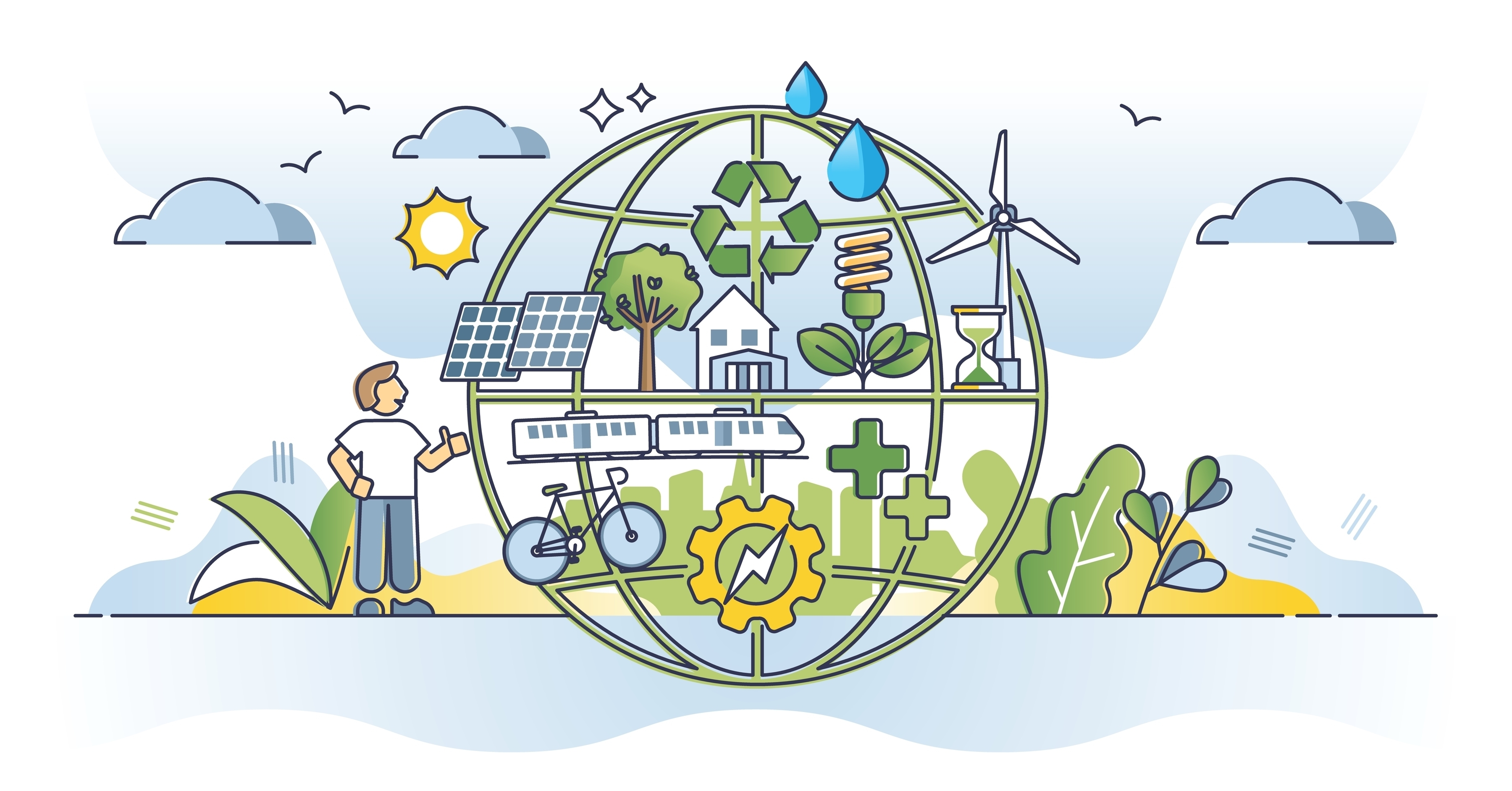Reduce, Reuse, Recycle - how to live the 3Rs principles and protect the environment?
3 min read – like, share, comment!
First published in Polish by Magdalena Kozłowska
Air pollution and progressive climate change are among the biggest problems we are currently facing. To stop the harmful effects of global warming and reduce emissions of dangerous pollutants in the air, we require not only large-scale projects and new technologies but also care and concern for the environment in our everyday actions. Our habits are important. The 3Rs principle: Reduce, Reuse, Recycle proves very helpful.

Picture:: author's archives
Here are some of the reasons for putting the 3Rs principles into practice:
- Protecting the air and climate: Reducing energy consumption by thermo-modernisation of our homes can reduce the fuels we use for heating. By doing so, we reduce emissions of air pollutants and greenhouse gases. The best and most cost-effective energy is the energy we do not consume - a very important principle that can positively affect the environment and our wallets.
- Preventing overconsumption: Mass-scale production and consumption result in an enormous burden on the environment. By implementing the 3Rs principle, it is possible to reduce the amount of waste in landfills and the amount of raw materials required to manufacture new products.
- Conserving resources: Implementing the 3Rs principle allows us to reduce our resources.
- Reducing costs: Implementing the 3Rs principle can reduce production, transport and waste disposal costs.
- Strengthening the local economy
- Improving quality of life
To help educators and local leaders spread the word about the 3R lifestyle, together with Partners from Poland, Lithuania, Hungary, the Czech Republic and Spain, we have prepared a handbook, short instructional videos and podcasts (discussions with experts). Each of the materials was developed and divided into the following 6 topics:
- Introduction to zero waste,
- Shopping and food,
- Cosmetics,
- Cleaning products,
- Energy efficiency,
- Water conservation,
which together form a comprehensive educational tool. All of the materials are excellent tools for use in informal education. Below are some suggestions on how they can be utilised:
- Educational meetings: materials can be used as a starting point for discussing reducing energy consumption, decreasing waste production, making your cosmetics and cleaning products, not succumbing to excessive consumerism, and reusing. Educational meetings can be a part of workshops or other forms of meetings with participants.
- Online education: provided content can be used as teaching material during virtual classes. It can be sent to participants as an assignment to watch and reflect on before an online meeting and then discuss the topic. The videos are short so that viewers can receive tips on changing their habits and living according to the 3Rs principle quickly. Thanks to the podcasts, listeners can gain a broader knowledge of the topic – finding out about research and getting practical examples of things they can do to protect the environment on a day-to-day basis.
- Pupils and students: materials can be used in schools and universities as supplementary material for lessons or lectures. They can be an attractive addition to the course material and encourage pupils and students to discuss and exchange ideas.
- Social media: podcasts and videos can be shared on various social media platforms to reach a wider audience and raise awareness about the need to protect the environment and change our daily habits.
- Social initiatives: podcasts and videos can be used in social initiatives such as information and education campaigns to raise awareness and increase public focus on environmental issues.
We encourage you to use the prepared materials, which are available on the project's website.
Our educational videos can also be viewed on YouTube, and podcasts can be found on Spotify.
The project was co-financed by the Erasmus+ Adult Education programme.
Further reading:
Passive environmental education - how to subconsciously develop eco-friendly habits
Technology for the planet: tools and applications that help raise environmental awareness
Trainers save the Planet - The Eco-Guidebook and Six Rules to Follow
Before you buy, before you throw away... Ideas for green educational projects
Komentari
Bardzo dziękuję za tak…
Bardzo dziękuję za tak różnorodne narzędzia. Z pewnością wykorzystam, ponieważ akurat dołączyłam do projektu DziałaMY ZERO WASTE, gdzie/w którym nauczyciele będą wspierać koordynowane przez siebie szkolne kluby wolontariatu. Czeka mnie szkolenie z nimi, więc z pewnością dalej rozpowszechnię wypracowane przez Panią i zespoły materiały.:) Ula podzieliła się polecajką. Ja także to zrobię. Wspaniałą inicjatywą poznańską jest PO-DZIELNIA. To centrum ekonomii współdzielenia, kierujące się ideą share economy. To nie tylko free shop, ale także twórcy give boxów na terenie poznańskich fyrtli. To przede wszystkich wspaniały zespół społeczników, którzy starają się swoimi działaniami przecierać tak ważne ścieżki. Polecam uwadze:)
Polecam także świetną…
Polecam także świetną inicjatywę "Trenerzy dla planety". Zostały stworzone konkretne wskazówki, które pomagają ograniczać negatywny wpływ naszych działań na środowisko. Świetna inspiracja! Np. Ograniczanie jednorazowych naczyń wykorzystywanych w cateringu, czy wykorzystywanie narzędzi edukacyjnych wielokrotnego użytku zamiast jednorazowych. Link do ich FB: https://www.facebook.com/trenerzydlaplanety/
Miasto Warszawa od bodajże…
Miasto Warszawa od bodajże dwóch lat narzuca grantobiorcom ograniczenia w zużyciu przedmiotów jednorazowego użytku wykonanych z tworzyw sztucznych. Nie wiem, czy to wynik dyrektyw EU, w każdym razie lepiej późno niż wcale. Inna sprawa, czy ktoś tego przestrzega, bo chyba nikt nie kontroluje. My ograniczyliśmy zużycie plastiku niemal do zera, ale wciąż wiele osób, także młodych, nie może się przyzwyczaić, że np. nie rozdajemy wody w plastikowych butelkach.
Twoja polecają przypomniała…
Twoja polecajka przypomniała mi o ekozasadach w projektach dotowanych przez Miasto Poznań. M.in. jest zapis w umowach, że na szkoleniach nie można podawać wody butelkowanej i także wystrzegać się jednorazowych naczyń. Osobiście cieszą mnie te zamiany:)



Bardzo ciekawa biblioteka…
Bardzo ciekawa biblioteka materiałów. Mam wrażenie, że dzieci są lepiej wyedukowane od dorosłych w kwestiach np. recyklingu. Dlatego cieszy, że materiały zostały przygotowane także z myślą o dorosłych. Podzieliłam się nimi z grupą ekologicznych pasjonatów z mojego osiedla.